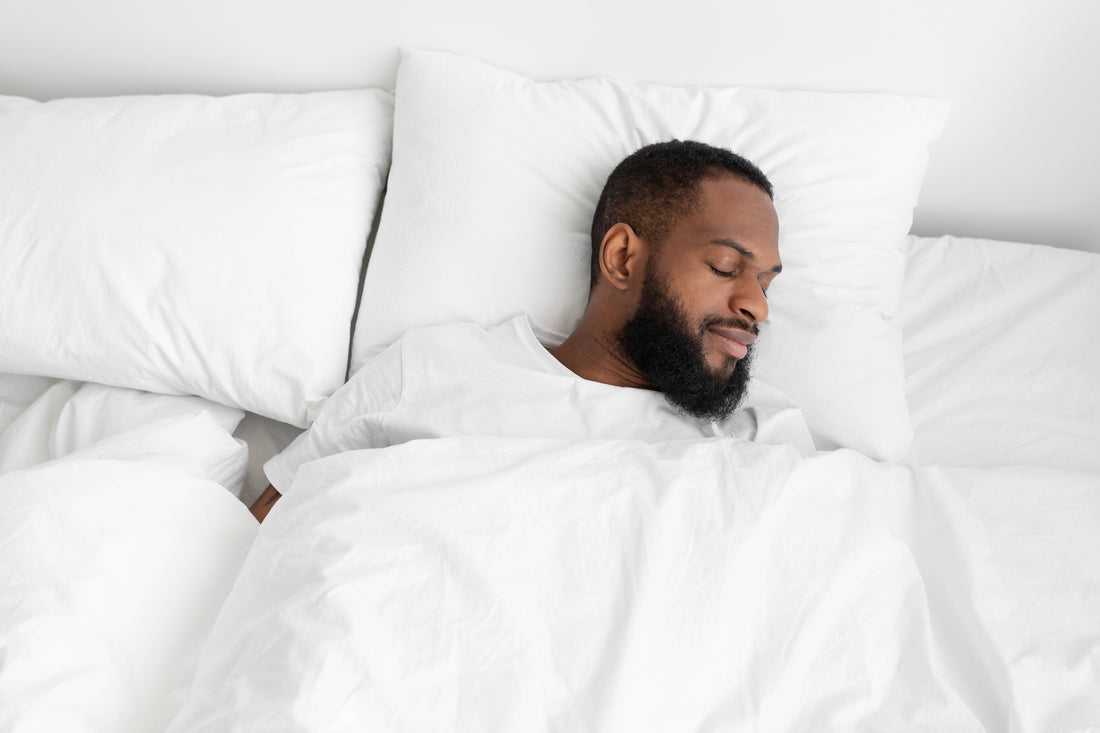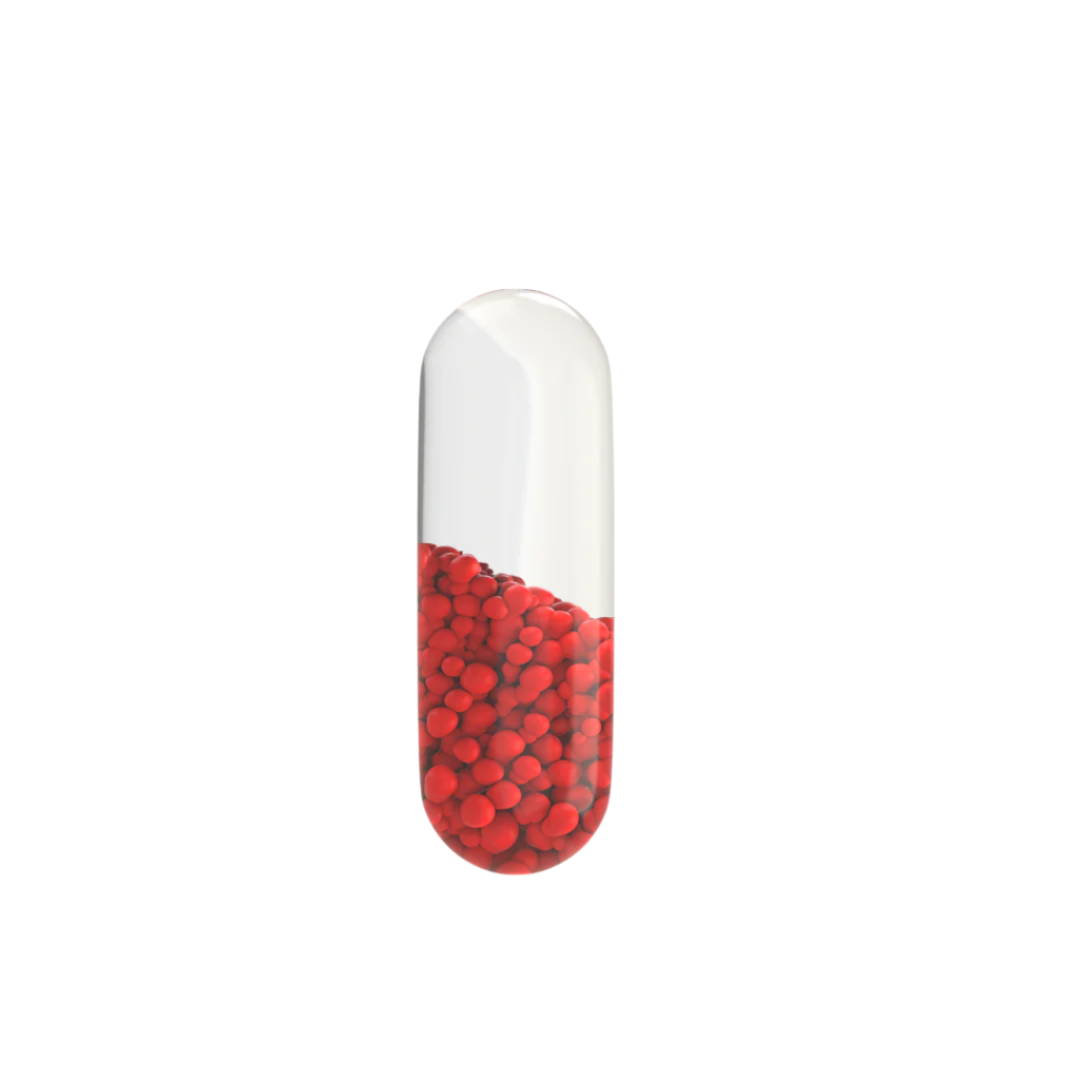How To Sleep Fast: Our Top Methods and Tips

We've all been there. You're settled into bed, ready for a comfy and relaxed sleep, when your mind suddenly starts racing a mile a minute. You start thinking about everything you have to do tomorrow or replay an argument you had earlier in the day. Suddenly, falling asleep seems impossible.
If you're struggling to fall asleep at night, don't worry — you're not alone. Millions of people have insomnia, and many more have occasional sleep problems. The good news is that you can do plenty of things to fall asleep fast and get a better night's rest.
In this article, we'll look at how long it usually takes for people to fall asleep and some medical reasons you might be struggling. Then, we'll look at why you might want to make sure you drop off quickly and share some tips and tricks on how to fall asleep fast, so you can get the shut-eye you need.
How Long Does It Normally Take To Fall Asleep?
Most people will start to feel sleepy around 10-20 minutes before they fall asleep. This is because as you get closer to sleep, your body starts to slow down its production of the hormone adrenaline.
Adrenaline is a "fight or flight" hormone that helps us to stay alert and focused. When trying to sleep, however, our bodies must start winding down so we can relax and drift off.
For some people, this process happens relatively quickly. For others, it can take much longer — sometimes an hour or more. This difference is partly due to genetics, but it can also be affected by stress, anxiety, and how well-rested you are.
Why Some People Can't Fall Asleep Fast
Several medical conditions can make it hard for you to fall asleep or stay asleep throughout the night. These include:
Sleep apnea: This is a condition where your breathing repeatedly stops and starts during the night. A blockage in your airway can cause it, and it can disrupt your sleep.
Restless leg syndrome: Restless leg syndrome is a condition where you have an irresistible urge to move your legs. This makes it very hard to stay still long enough to fall asleep.
Chronic pain: This can make it difficult to get comfortable enough to fall asleep and cause you to wake up frequently at night.
Depression: This can make it hard to fall asleep and cause you to wake up frequently during the night.
You must talk to your doctor if you think you have one of these conditions. They may be able to offer treatments that can help.
Different Methods Peoples Utilise to Fall Asleep Fast

There any many situations in which people want to fall asleep fast. Some people need to fall asleep quickly because they have an early morning meeting or need to catch an early flight. Others may be trying to fall asleep after a late night out or may simply be struggling with insomnia. For others, such as soldiers, falling asleep quickly is essential.
The Military Method: The Navy Method of How To Sleep Fast
The military method of falling asleep is a system developed by the United States Navy Pre-Flight School to help pilots fall asleep in just two minutes. The technique took pilots six weeks to learn, and they managed to sleep after coffee and with the sound of gunfire in the background.
The method is simple and relies on the fact that it's tough to fall asleep when thinking about it.
It involves several simple steps:
- Firstly, loosen your face, including the mouth muscles
- Next, let the shoulders fall and let your hands fall by your sides
- Loosen up your chest as you exhale
- Remember to relax the legs, thighs and calves
- Now clear the mid for a period of ten seconds while imagining a relaxing scene
- If not yet asleep, repeat the words "don't think" for 10 seconds
This method can be adapted to any situation where you must fall asleep fast. It's particularly effective because it helps clear your mind and relax your body, which is essential for falling asleep quickly.
Counting Sheep: A Traditional Answer To How To Fall Asleep
This classic method for falling asleep involves counting sheep (or any other object) as they jump over a fence. The idea is that the task's monotony will help bore you to sleep and solve the "how to sleep fast" problem.
While there's no scientific evidence that counting sheep works, it may be worth trying if you're struggling to fall asleep. Choosing something boring that won't hold your attention for long is important. It'll defeat the purpose if you start getting interested in what you're counting.
Progressive Muscle Relaxation

Progressive muscle relaxation involves tensing and relaxing different muscle groups in your body. The idea is that by tensing and releasing your muscles, you'll help relax your body and clear your mind.
To do progressive muscle relaxation:
- Start by tensing the muscles in your toes for 5 seconds
- Release the tension and focus on the sensation of the muscles relaxing
- Move up to your calf muscles, then your thighs, stomach, arms, neck and finally, your face
This method can take a bit of practice to master, but it can be very effective in helping you to fall asleep quickly.
Breathing Exercises
Several different breathing exercises can help you to fall asleep quickly. The 4-7-8 breath exercise is particularly effective.
To do this exercise:
- Start by exhaling completely through your mouth
- Close your mouth and inhale through your nose for a count of four
- Hold your breath for a count of seven
- Exhale through your mouth for a count of eight
- Repeat this cycle three or four times
Deep breathing exercises like this help relax your mind and body, making it easier to fall asleep.
Visualisation
This is a method that involves picturing a relaxing scene in your mind. The idea is that by focusing on a peaceful image, you'll help to relax your body and clear your mind.
To do visualisation, start by closing your eyes and taking a few deep breaths. Then, picture a scene that makes you feel happy and relaxed. It could be a beach, a forest, or anywhere else that makes you feel calm. Focus on the details of the scene, such as the sounds, smells and colours.
Acupressure
Acupressure is an ancient Chinese healing practice that involves applying pressure to specific points on the body. Many believe that acupressure can help to relieve stress, promote relaxation and be a solution for how to sleep fast.
Several acupressure points can help you fall asleep. One of the most effective is the spirit gate point, located on the inside of your wrist, three finger-widths from the crease. To massage this point, use your thumb to apply gentle pressure for a minute.
Another effective point is the union valley point, between your thumb and index finger. To massage this point, use your index and middle fingers to apply gentle pressure for the same length of time.
These techniques can be some of your answers to how to fall asleep fast. They work by helping to relax your mind and body, which makes it easier to fall asleep.
10 Tips for Falling Asleep Fast

You can do many things to help yourself fall asleep more quickly. Some people find that a simple change to their nightly routine can make a big difference. Others find that they need to try a few different things before they find something that works for them.
Here are some of the most effective tips for falling asleep:
1. Establish a Regular Sleep Schedule
Going to bed and waking up at roughly the same time each day can help regulate your body's natural sleep rhythm. This can make it easier to fall asleep and wake up feeling rested.
To start with getting a regular sleep schedule, you should:
- Choose a bedtime that you can stick to most nights of the week
- Set the alarm for the same time each morning, even on weekends
- Avoid taking naps during the day
However, it's important not to get too caught up in a strict schedule. If you do, you may feel stressed and anxious about sleep, making it harder to fall asleep. Establishing a plan is possibly one of the top tips for falling asleep.
2. Create a Relaxing Bedtime Routine
One of the best ways to fall asleep fast is to create a relaxing bedtime routine that you can do each night. This can help to signal to your body that it's time to start winding down.
Your routine can be anything that you find relaxing. It might include things like reading, taking a bath, or stretching. The key is to do the same thing (or similar things) each night so that your body starts associating them with sleep.
Simple relaxation methods can work for many people wondering how to fall asleep fast.
3. Avoid Caffeine Late in the Day
Caffeine is a stimulant, which means it can make you feel more awake and alert. Drinking caffeine late in the day may make it harder to fall asleep at night.
It would be best if you aimed to cut off caffeine at least six hours before bedtime as one of the ways to fall asleep. This will give your body enough time to metabolise the caffeine and avoid it affecting your sleep.
Equally, besides being one of the main tips for falling asleep, lowering your caffeine intake has numerous other health benefits. So you've nothing to lose!
4. Avoid Alcohol Before Bed
While alcohol may make you sleepy, it disrupts your sleep later in the night. This is because the alcohol prevents you from entering deep sleep, which is when your body makes most of its repair and recovery.
If you want to drink alcohol, do it earlier in the evening rather than right before bed. This will give your body time to metabolise the alcohol, so it's out of your system by bedtime. This could be the key if you're a drinker wondering how to sleep fast.
5. Limit Screen Time Before Bed
Electronic devices like phones, laptops, and tablets emit blue light, suppressing melatonin production and making it harder to fall asleep. If you're on your phone and can't sleep, Googling "how to fall asleep fast," you may have just answered your question.
To avoid this, limit your screen time in the hours leading up to bedtime. If you must use a device, consider wearing blue-light-blocking glasses or downloading a blue-light filter for your device.

6. Get Some Sunlight During the Day
Exposure to sunlight helps to keep your circadian rhythm on track. This, in turn, can make it easier for you to fall asleep at night, making exposure to the sun one of the best tips for falling asleep.
Make sure to get some sunlight during the day. You can also try using a light therapy box for 30 minutes daily to simulate sunlight exposure.
7. Keep Your Bedroom Cool and Dark
Your body temperature drops when you sleep, so a cold environment is one of the great ways to fall asleep fast. The ideal temperature for sleep is between 15-19 degrees Celsius (60-67 degrees Fahrenheit).
To keep your bedroom cool, try using a fan or opening a window. You may also consider investing in blackout curtains or an eye mask to make sleeping in a completely dark room easier.
8. Use Comfortable Bedding
Having comfortable bedding is one of the great ways to fall asleep fast and stay asleep throughout the night. Make sure your mattress is supportive and that your pillows are comfortable. If you often wake up with aches and pains, consider investing in a memory foam mattress or pillow.
9. Practice Relaxation Techniques
There are many different relaxation techniques that you can use to fall asleep fast. You've already read about some of these tips for falling asleep earlier in the article.
If we had to choose one, progressive muscle relaxation is one of the best ways to fall asleep. Consider trying this method first and if that doesn't bring results, look at some of the other relaxation techniques mentioned.
10. Avoid Napping During the Day
While naps can be tempting, they can make it harder to fall asleep at night. This is because napping during the day can disrupt your natural sleep cycle. If you're still wondering how to fall asleep fast, this might be one of your issues.
If you need to nap, try to do it early in the day and limit it to 30 minutes or less. This will help to ensure that it doesn't interfere with your sleep at night.
How to Wake Up Easier?

For many people, ways to fall asleep aren't the issue. Instead, it's what comes afterwards. They can fall asleep just fine but sadly wake up feeling groggy and unrested. This can be as problematic as trouble dropping off.
If that's the case for you, B・SYNC ON might be an answer.
B・SYNC ON is a supplement created to support and enhance your wake-up process. It contains four natural ingredients – Vitamin B5, Vitamin B12, Zinc and Caffeine. These are sealed in a delayed-release capsule which delivers nutrients around seven hours after you take the tablet. If you take it right before sleep, you'll have a gradual and easy wake-up and reap the benefits throughout the day.
Conclusion: How to Sleep Fast
If you're struggling to drop off, there are many things you can do to fall asleep fast. Avoid caffeine and alcohol before bed, limit screen time, and get sunlight during the day. You should also ensure your bedroom is cool and dark and have comfortable bedding. If you're still struggling, you might consider several relaxation methods.
FAQs
What is the number one tip to fall asleep fast?
The military method is a great way to fall asleep fast. It involves relaxing your entire body, starting with your facial muscles and working your way down. You can also try progressive muscle relaxation, which involves tensing and then relaxing different muscle groups in your body one at a time.
What are some other ways to fall asleep fast?
There are many ways to fall asleep fast. Some people find that reading or taking a bath before bed helps them relax and fall asleep quickly. Others find that listening to relaxing music helps them drift off to sleep. Experiment with different methods and see what works best for you.
What should I do if I can't fall asleep?
If you find that you can't fall asleep, it's essential not to get frustrated. This can make it harder to fall asleep. Instead, try to relax and clear your mind. If you still have trouble falling asleep, consider talking to a doctor or sleep specialist. They can help you identify any underlying issues that may be causing your sleep problems and recommend treatment options.







